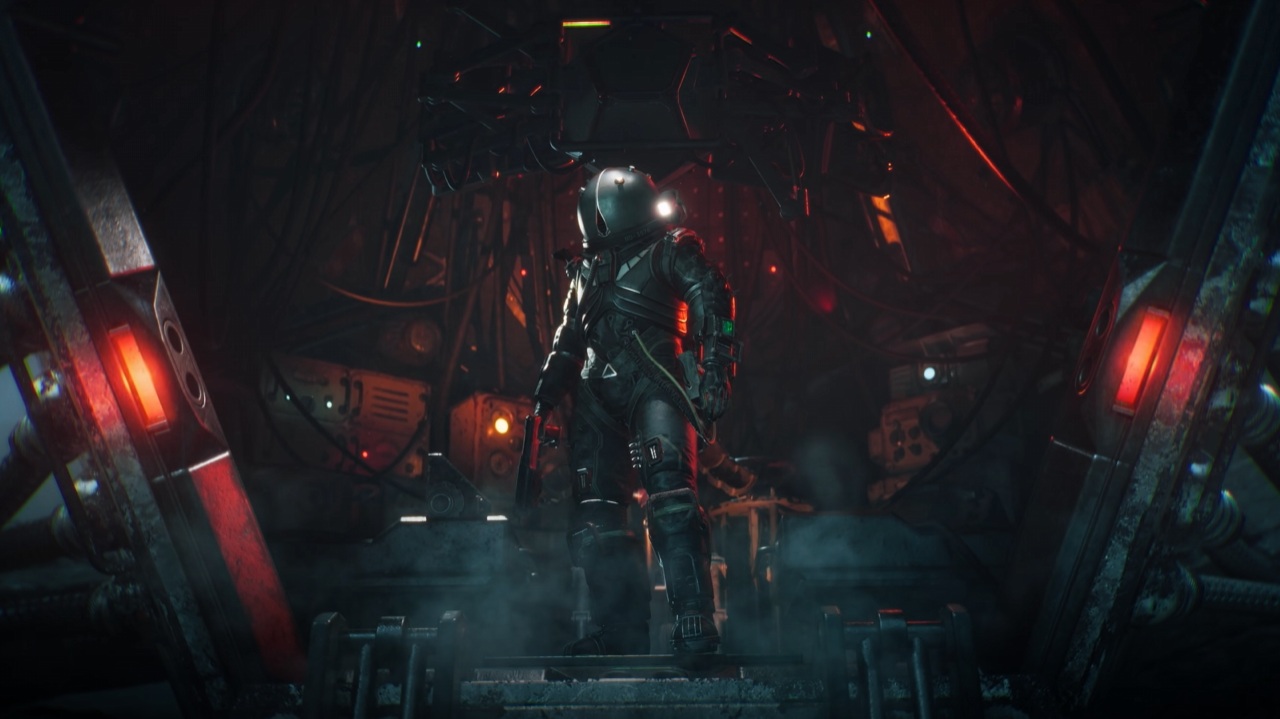Best small gaming PCs 2024: Mini, compact, and SFF
Optimize your gaming and maximize your space.
Some of our favorite mini PCs aren't just for productivity and streaming purposes. With the right hardware, small PCs can also handle a range of gaming duties. Some have integrated graphics best suited for lighter titles, while others manage to pack in a powerful discrete GPU to handle a full selection of demanding AAA titles. Having a gaming PC no longer means you have to give up a ton of space on your desk.
Mini PCs have come a long way in recent years, and through our in-house testing and review process, we've discovered some of the best designs with upgradeable hardware inside. Geekom and AYANEO are both popular options, but MSI, ASUS, and Intel have impressed us with the gaming hardware on offer.
I've included small gaming PCs from different price ranges and levels of performance to help you find the perfect hardware for your needs.
The quick list
In a rush? No worries, just check out our quick list below that gives you everything you need to know about buying a mini PC at a glance. There are a few different options available, so take a moment to consider which one will best suit your needs.
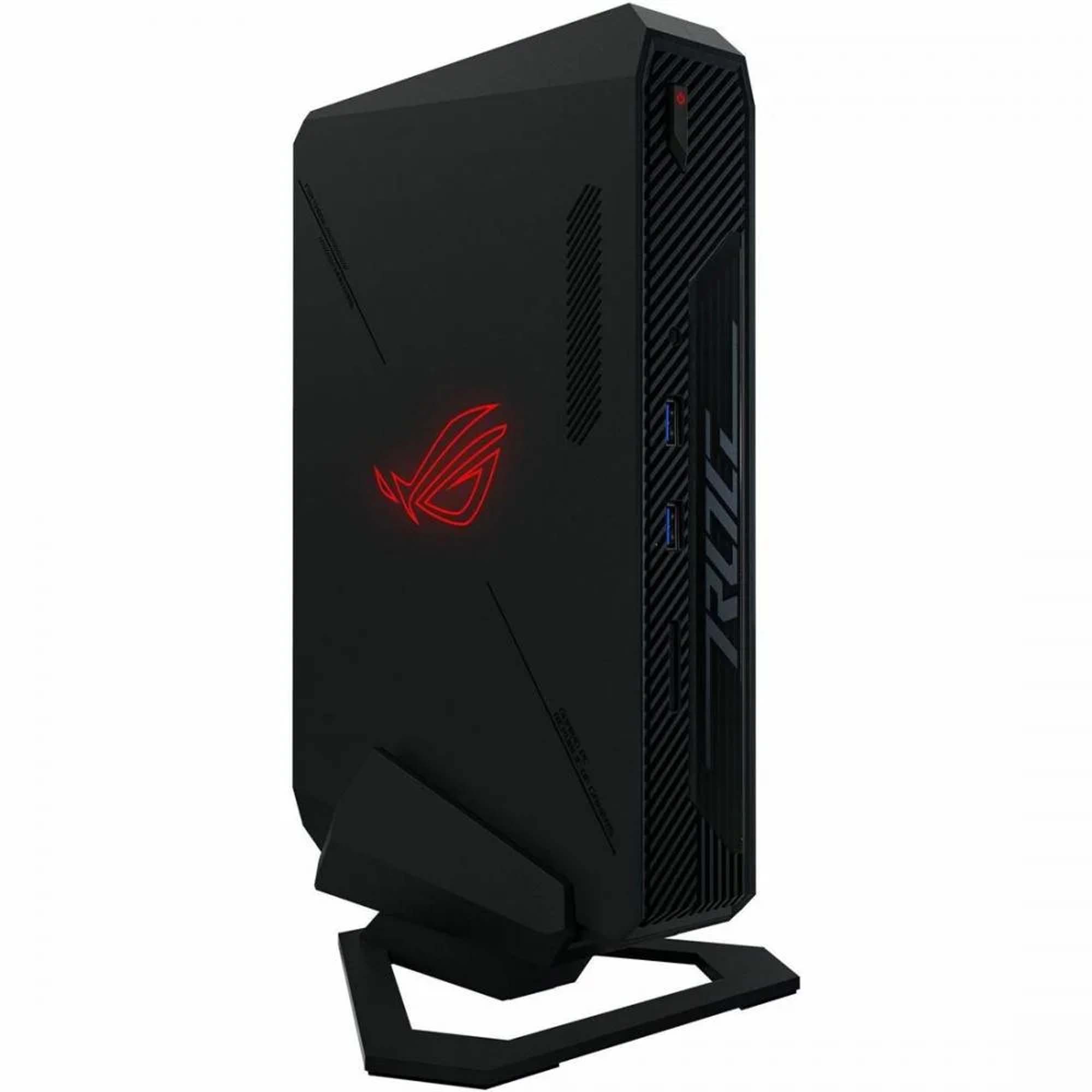
Best overall
The ASUS ROG NUC 970 boasts Intel Core Ultra CPUs, NVIDIA RTX 40-series Laptop GPUs, customizable RGB lighting, and an overall sleek design. It's the right choice for those who want modern performance hardware that can keep up with any of your favorite games.
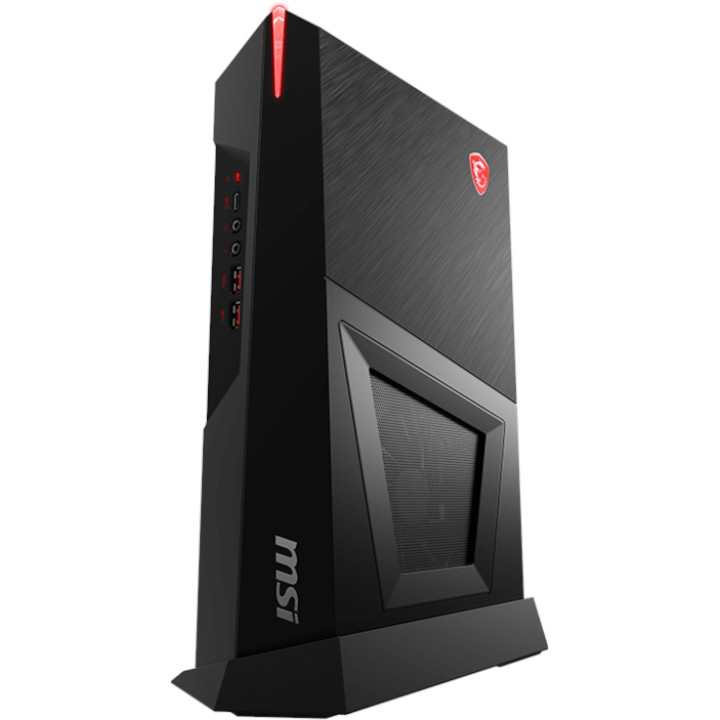
Runner-up
With RTX 30-series technology, the MSI MPG Trident 3 provides great performance without breaking the bank, all in a tiny, compact shell that doesn't take up too much room. If you want a stellar gaming experience from a mini PC, this is a pint-sized winner.
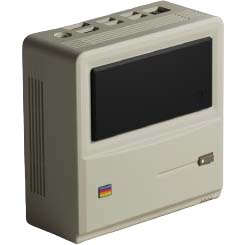
Best budget
AYANEO's Retro Mini PC AM01 doesn't have a discrete GPU, but the integrated Radeon graphics from the AMD Ryzen 7 5800U CPU can run a wide range of games including AAA titles, emulators, and streamed games via Xbox Game Pass. It's a great pick if you want to spend less than $400.
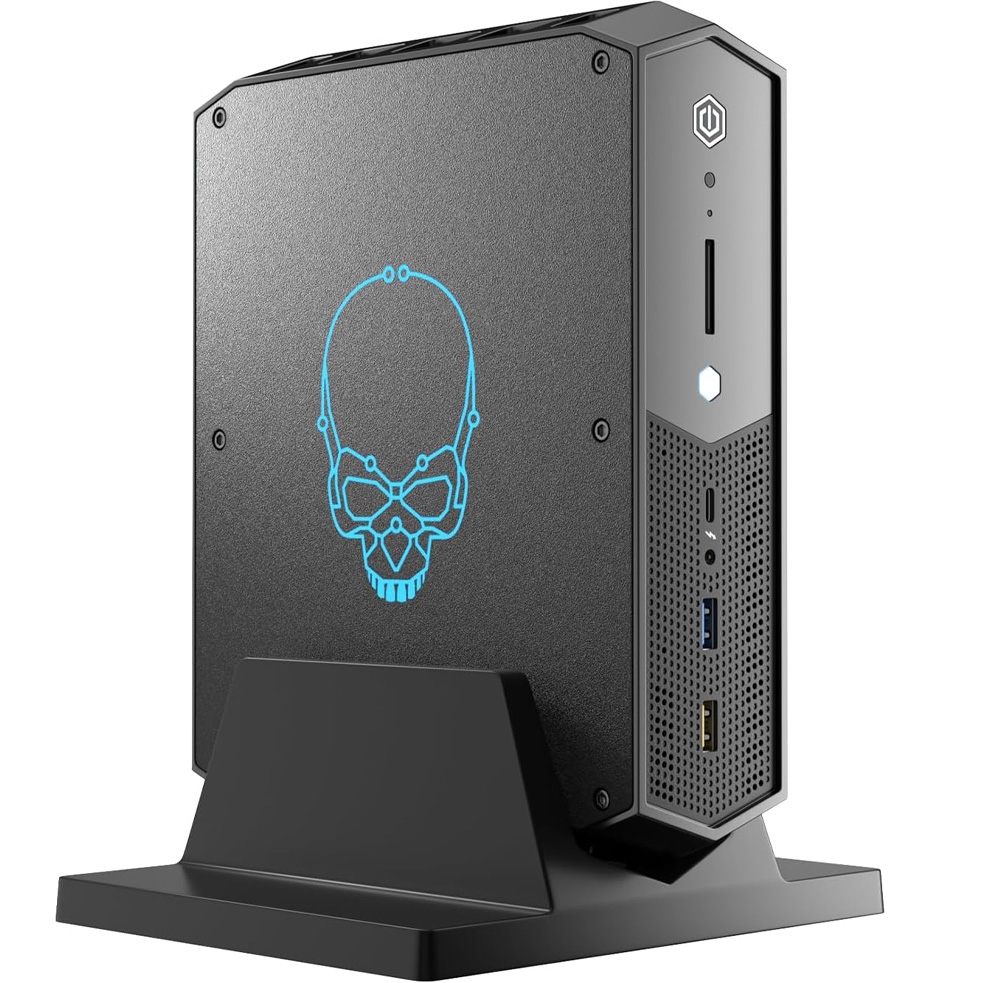
Intel power
With a 12th Gen Intel Core i7-12700H CPU, Intel Arc A770M discrete GPU with 16GB of VRAM, and a wide range of memory and storage options, this mini PC can easily handle any game you throw its way. It's all built into a stylized chassis that can stand vertically or horizontally.
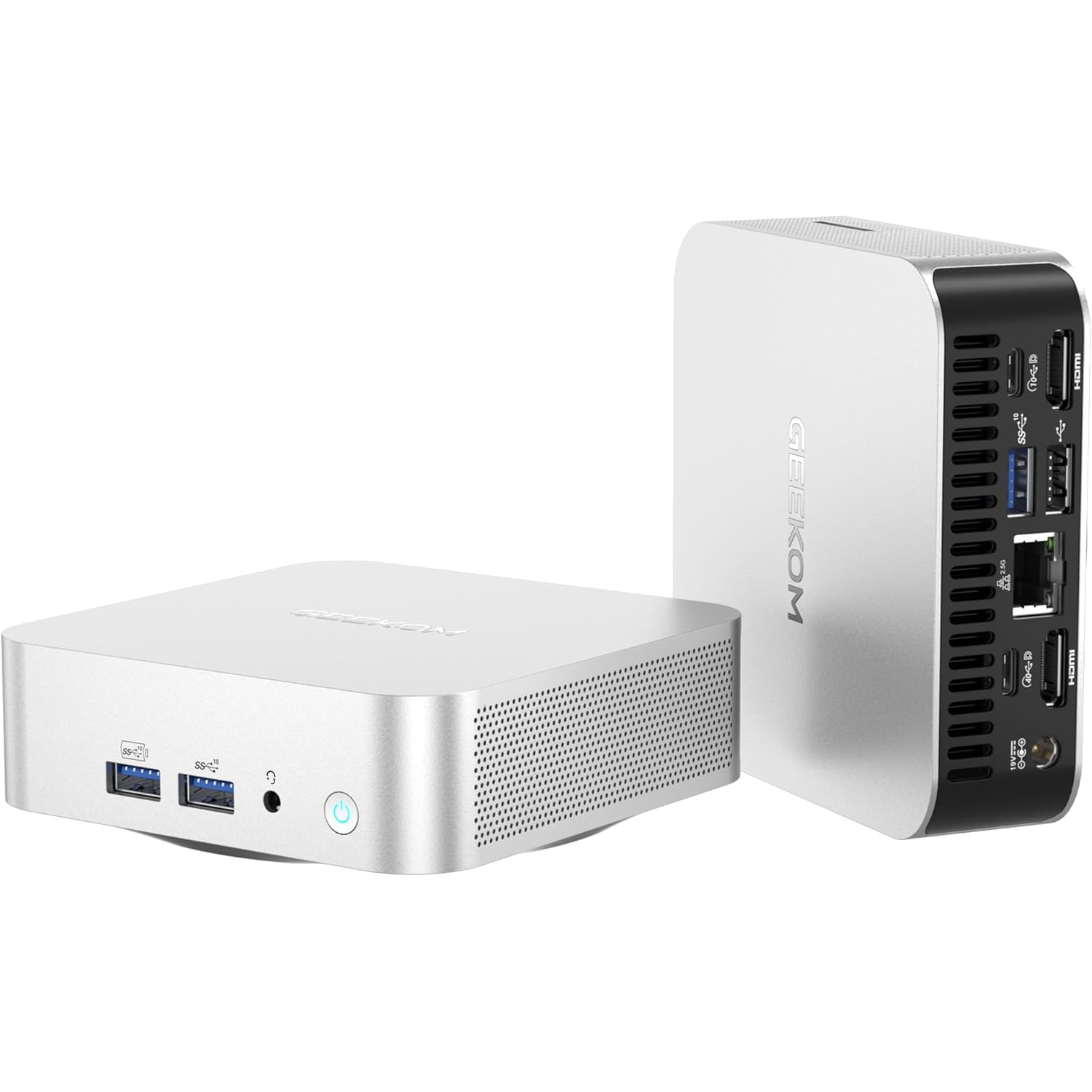
AMD power
Geekom's A8 includes an AMD Ryzen 9 8945HS CPU, integrated Radeon 780M graphics, 32GB of DDR5 RAM, and a 2TB M.2 PCIe 4.0 NVMe SSD, all for only about $849. The integrated GPU won't match the power from a discrete card, but it'll still run a ton of games at 1080p.
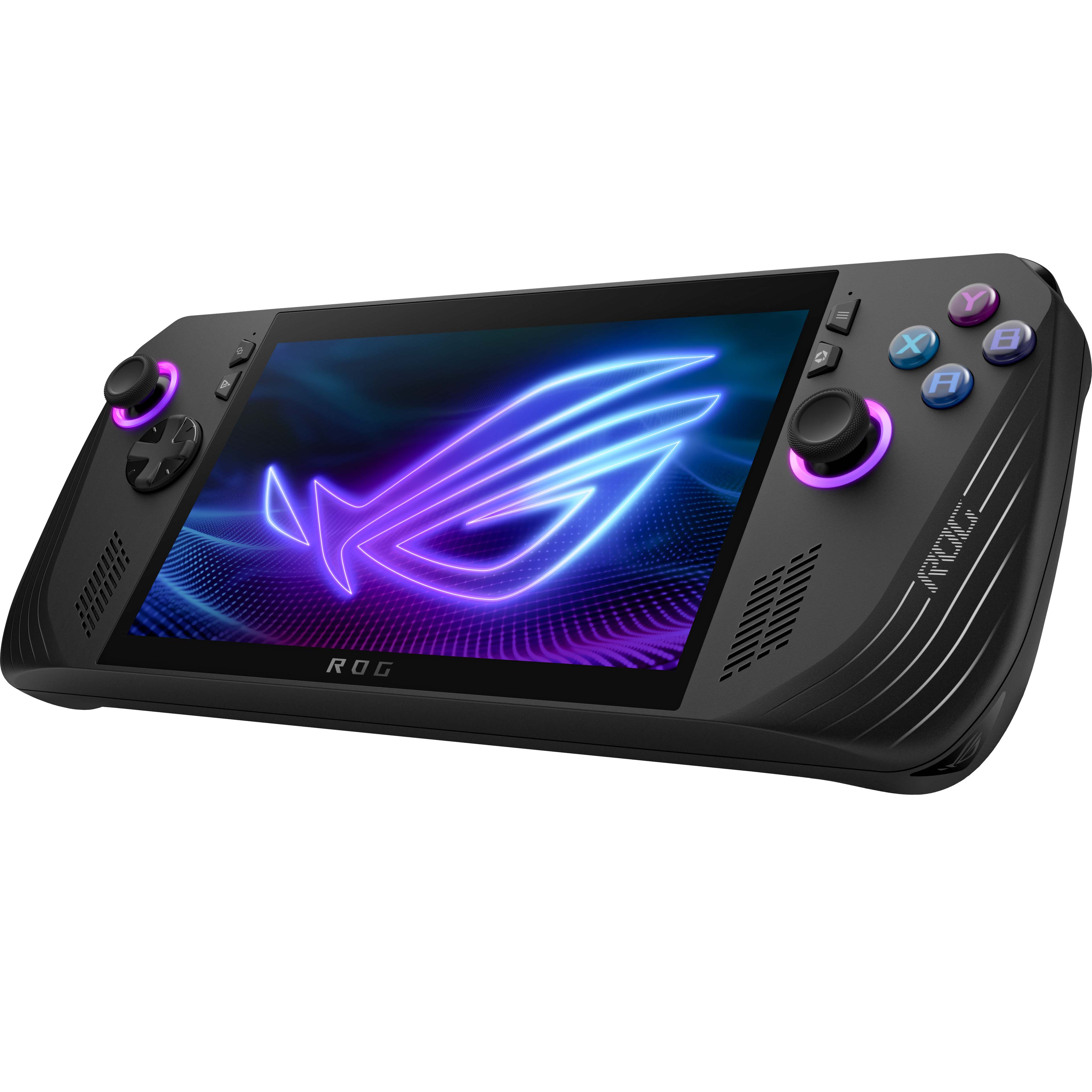
Best handheld
No, it's not technically a mini PC. But the ASUS ROG Ally X is a stellar handheld gaming PC powered by an AMD Ryzen Z1 Extreme chip, 24GB of LPDDR5 RAM, and up to a 1TB M.2 PCIe SSD. The battery for this gen has doubled in size to 80Wh, but it still costs only about $800.
Our favorite small gaming PCs
Why you can trust Windows Central
With the quick list out of the way, you're probably looking for more information about each small gaming PC. I've included here review highlights, pros and cons, and pricing info for each option.
Best overall
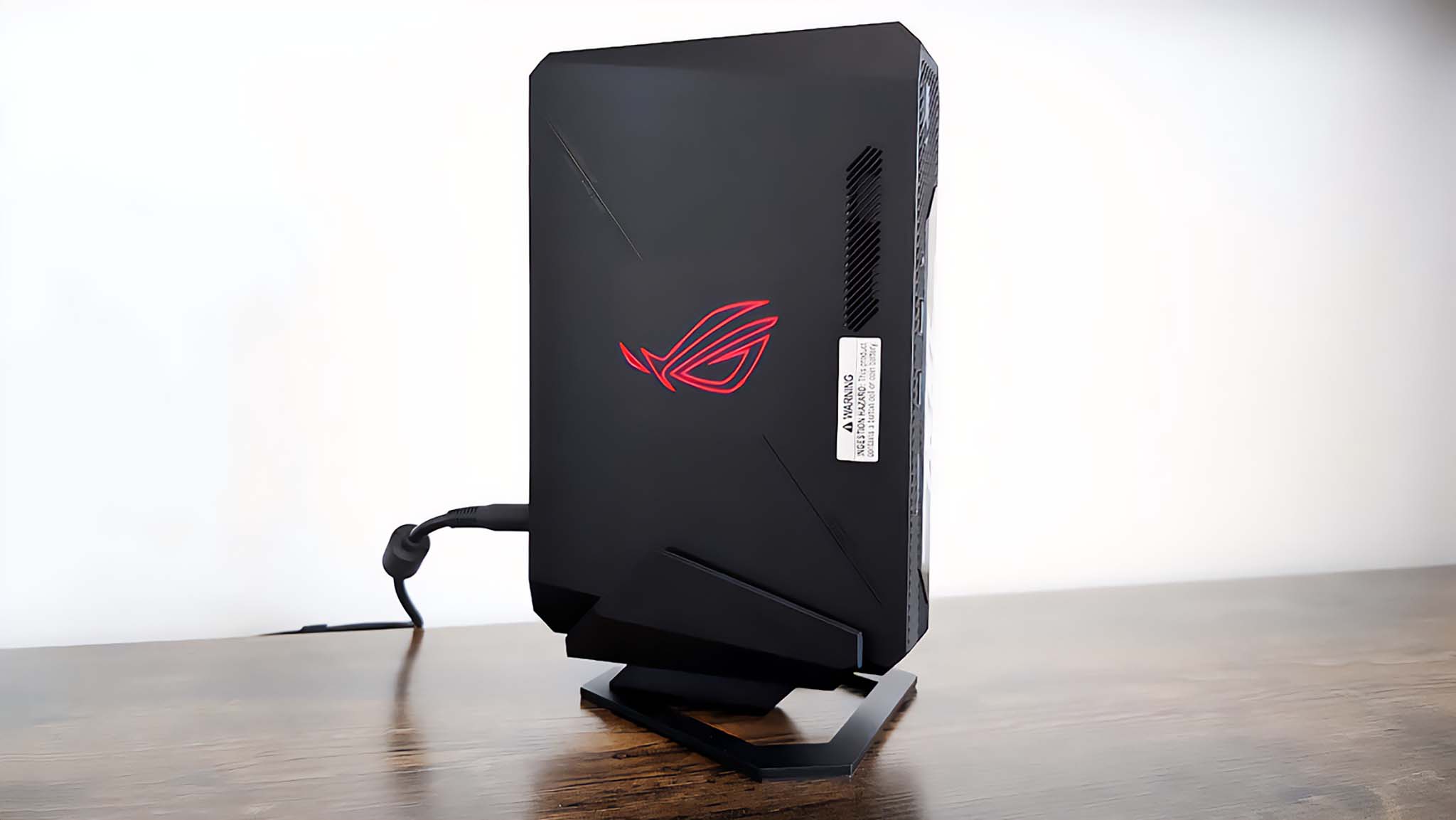
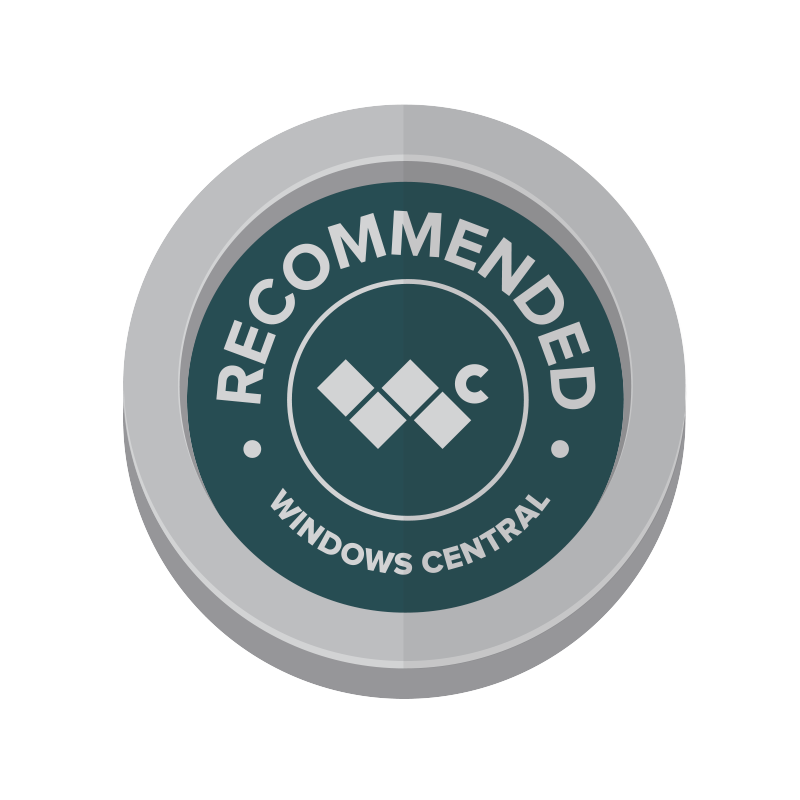
Specifications
Reasons to buy
Reasons to avoid
The ASUS ROG NUC 970 takes the small desktop PC form factor and adds mobile performance hardware that can handle any game on the market today. It's centered around Intel's Core Ultra 7 155H or Ultra 9 185H processors (CPU), paired up with either an NVIDIA RTX 4060 or RTX 4070 Laptop graphics card (GPU). That's enough to play all of your favorite titles, even at 1440p.
The mini PC also boasts up to 32GB of upgradeable DDR5 RAM and a 1TB M.2 PCIe NVMe SSD that can be swapped out after purchase. The PC's design and included stand allow it to be used horizontally or vertically, depending on how much space you need to save on your desk.
Windows Central Editor Rebecca Spear stated in her ASUS ROG NUC 970 review:
"The fact that it supports up to four monitors means you can have a decent battle station without needing a large computer tower. It also works as a great gaming console alternative if you want to connect it to your TV and play your favorite PC games on your couch."
A sleek case gives way to plenty of ports, including Thunderbolt 4, four USB-A 3.2 (Gen 2), two USB-A 2.0, HDMI 2.1, two DisplayPort 1.4a, an SD card reader, RJ45 Ethernet, and a 3.5mm audio jack. You can find the Core Ultra 7 model with RTX 4060 for about $1,629 at B&H.
Read our in-depth ASUS ROG NUC 970 review
Runner-up
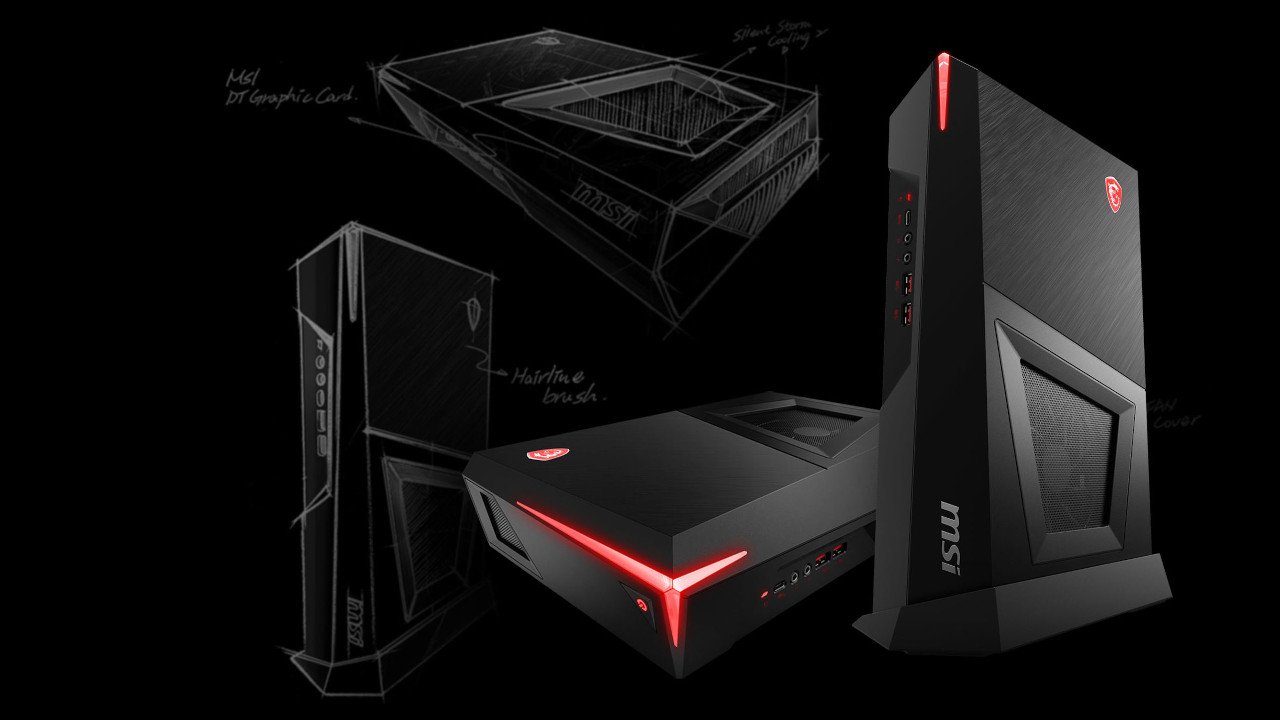
2. MSI MPG Trident 3
Specifications
Reasons to buy
Reasons to avoid
For the serious player who wants a smaller PC capable of tackling more recent games at higher settings, the MSI Trident 3 is one of the best options to consider. You're getting powerful if slightly dated performance hardware from Intel and NVIDIA in the form of a Core i7-13700F CPU and RTX 3060 discrete GPU. That's enough to deliver smooth frame rates at 1440p in all your favorite games.
There are a number of RAM and storage options available, with up to 32GB of DDR4 RAM and a mix of SSD and HDD storage up to 2TB each. The sleek case works horizontally or vertically, and it has some lighting on the outside for extra style.
The MSI MPG Trident 3 is slightly more affordable than our top pick, no doubt owing to the older performance hardware inside. A model with a Core i7-13700F CPU, RTX 3060 GPU, 32GB of RAM, and 1TB SSD costs about $1,469.
Best budget
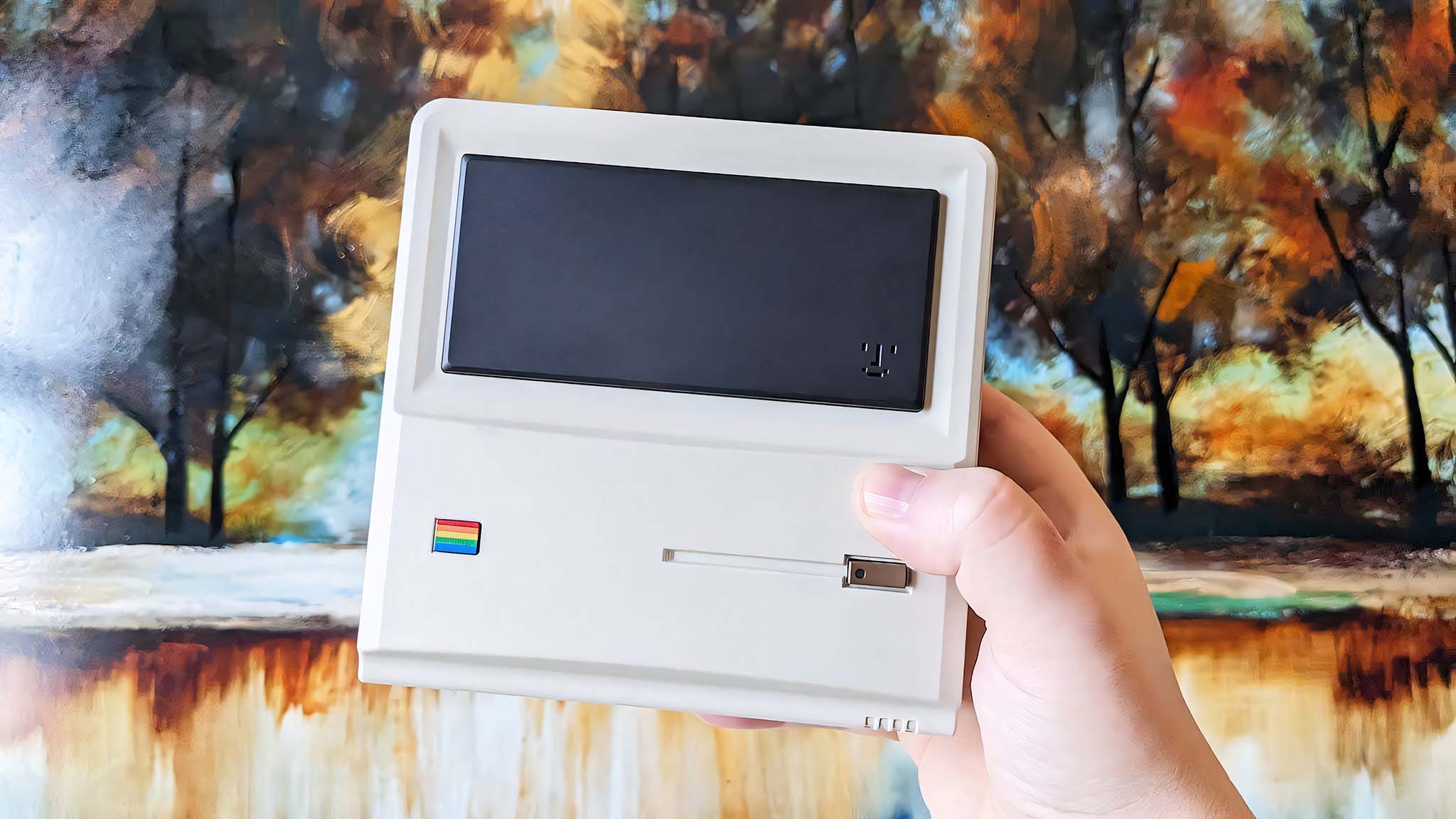
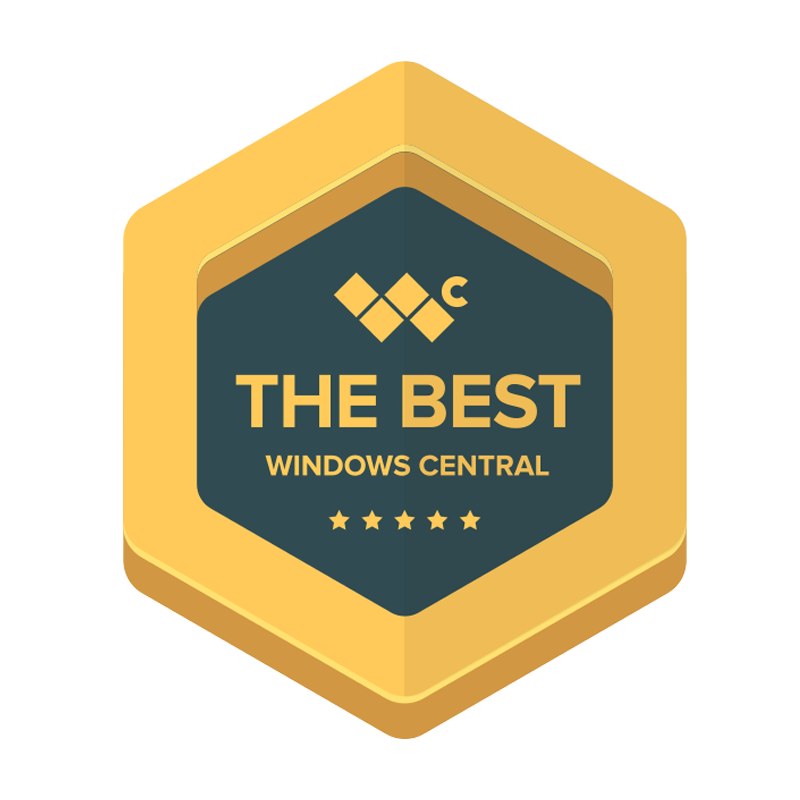
Specifications
Reasons to buy
Reasons to avoid
This is one of the coolest mini PCs I've ever seen, borrowing an adorable retro design reminiscent of the original Macintosh computer. It has a decent range of connectivity with dual-monitor support, including USB-C 3.2 (Gen 1), three USB-A 3.2 (Gen 2), USB-A 2.0, HDMI 2.0, DisplayPort 1.4, RJ45 Ethernet, and a 3.5mm audio jack.
The PC can be configured with up to an AMD Ryzen 7 5800U CPU with RX Vega 8 integrated graphics. In Rebecca Spear's AYANEO Retro Mini PC AM01 review, she discovered that even the Ryzen 7 5700U option could run games like Cyberpunk 2077 and Baldur's Gate 3 (although it wasn't smooth running at all). This PC is best reserved for lighter indie titles, game streaming through Xbox Game Pass Ultimate, and emulator platforms.
Considering you can get a model with a Ryzen 7 5800U CPU, 16GB of RAM, and 512GB SSD for about $359, this should prove to be a super popular option for value-conscious shoppers who want a permanent gaming outlet.
Read our in-depth AYANEO Retro Mini PC AM01 review
Intel power
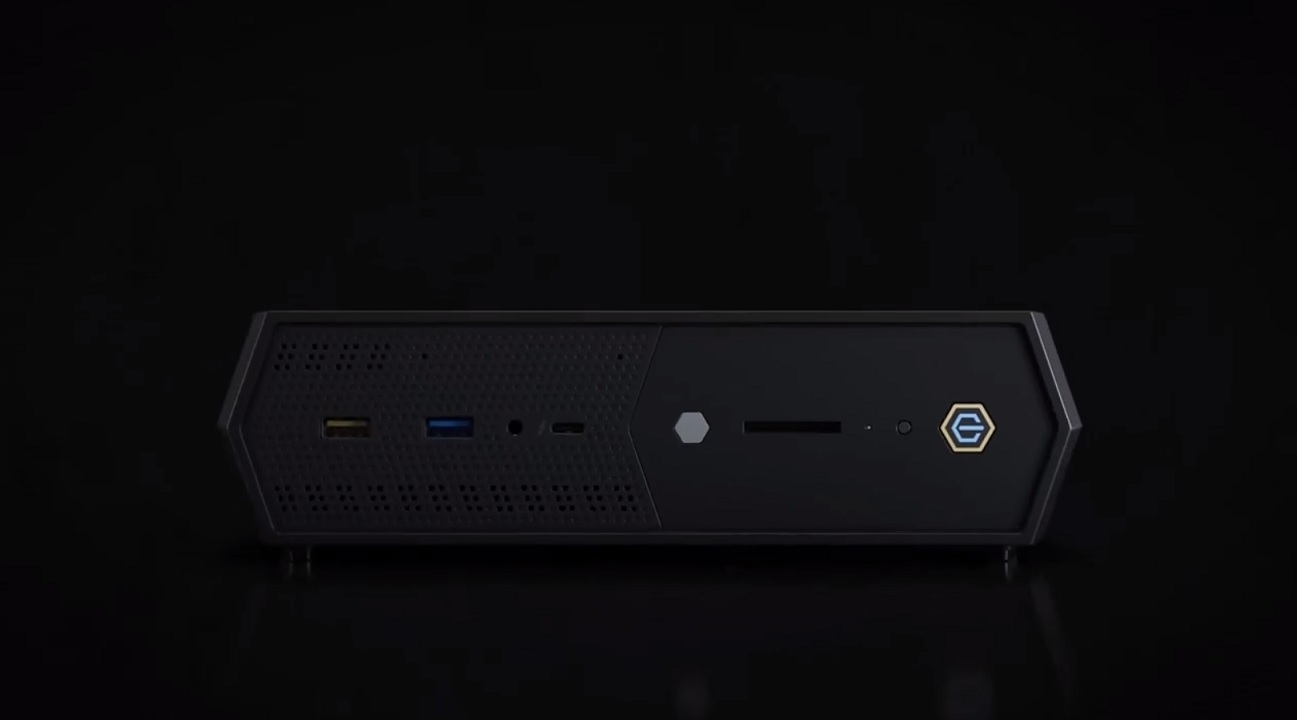
4. Intel NUC 12 Enthusiast
Specifications
Reasons to buy
Reasons to avoid
The Intel NUC 12 Enthusiast is one of the more curious small gaming PCs on our list. This thing is tiny, measuring 9.1 x 7.1 x 2.4 inches (230mm x 180mm x 60mm) with a plastic shell mounted on a metal inner frame. It works horizontally or vertically, and it comes with a stand for the latter. The stylized skull branding on the sides might not be for everyone, but at least it's easy to cover up.
The model I'm highlighting includes a 12th Gen Intel Core i7-12700H CPU, Intel Arc A770M dedicated graphics with 16GB of GDDR6 VRAM, 16GB of dual-channel DDR4 RAM, and a 256GB M.2 PCIe NVMe SSD that can be upgraded after purchase. Inside are two M.2 Gen 4 slots and one M.2 Gen 3 slot for expansion. All that for about $760 makes this PC very tempting.
Ports are plentiful and include dual Thunderbolt 4, 2.5GbE LAN, six USB-A 3.2 (Gen 2), two USB-A 2.0, SD card reader, and 3.5mm audio jacks. Wireless connectivity is handled by fast and reliable Wi-Fi 6E.
AMD power
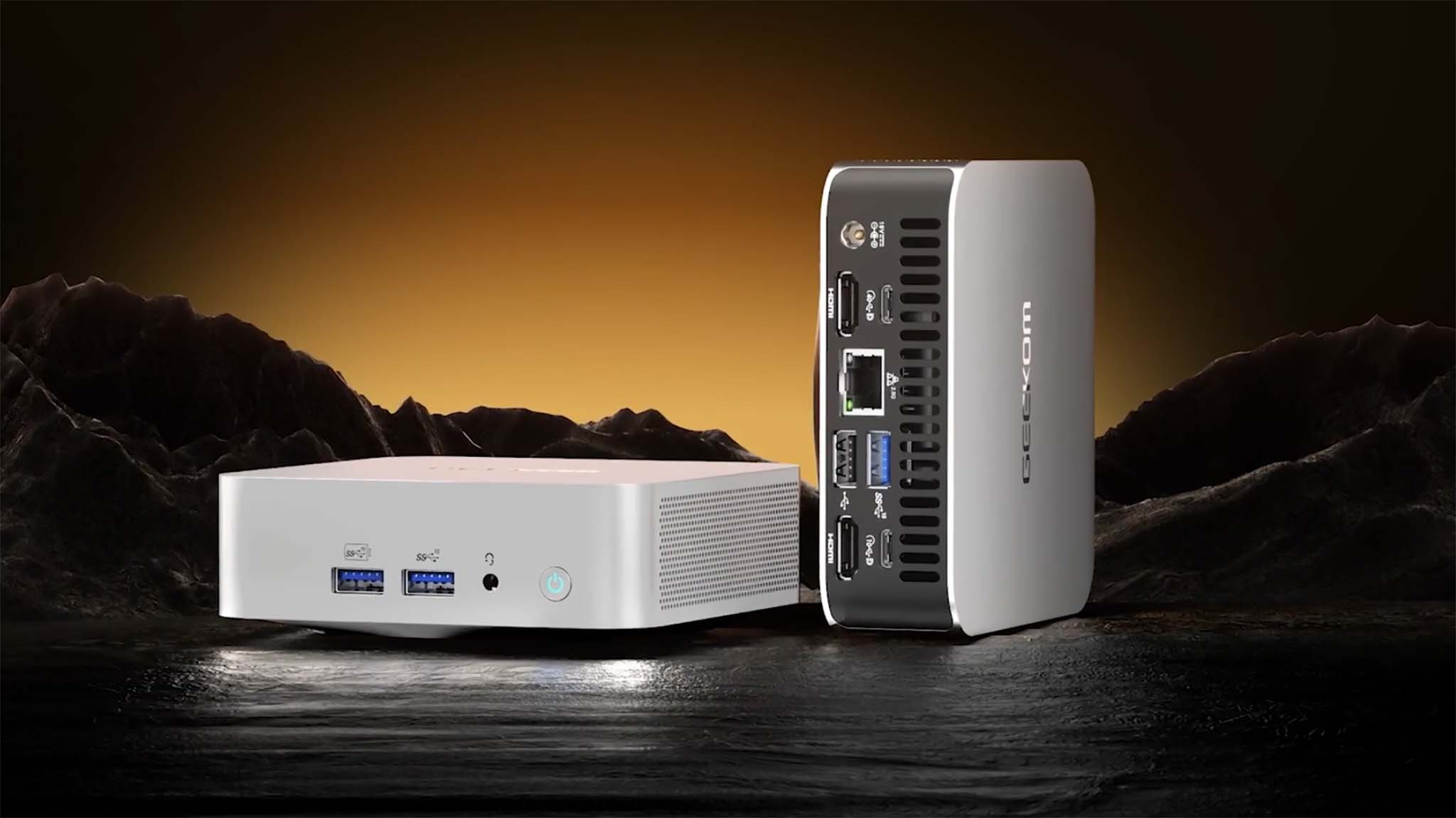
5. Geekom A8
Specifications
Reasons to buy
Reasons to avoid
Geekom makes some of the best mini PCs on the market today, and its A8 model can certainly handle some gaming while also making a great fit for productivity. Its AMD Ryzen chip includes a Neural Processing Unit (NPU) for local AI acceleration, which classifies it as an AI PC.
At the top end, it's powered by an AMD Ryzen 9 8945HS CPU with Radeon 780M integrated graphics, but you can also spend less and land a Ryzen 7 8845HS chip. Both will handle lighter titles with ease, and you'll have no problem with game streaming and emulation.
The chassis is discrete and will match practically any setup, remaining cool under load thanks to a chunky fan and plenty of venting. The dual-channel RAM and M.2 PCIe 4.0 NVMe SSD can be upgraded after purchase, but 32GB of memory and 1TB or 2TB of storage space from the factory should be more than enough for most users.
Ports include three USB-A 3.2 (Gen 2), RJ45 Ethernet, two HDMI, two USB4, USB-A 2.0, and 3.5mm audio. It supports up to four displays with this setup, allowing you to build a true workstation around the PC.
Best handheld
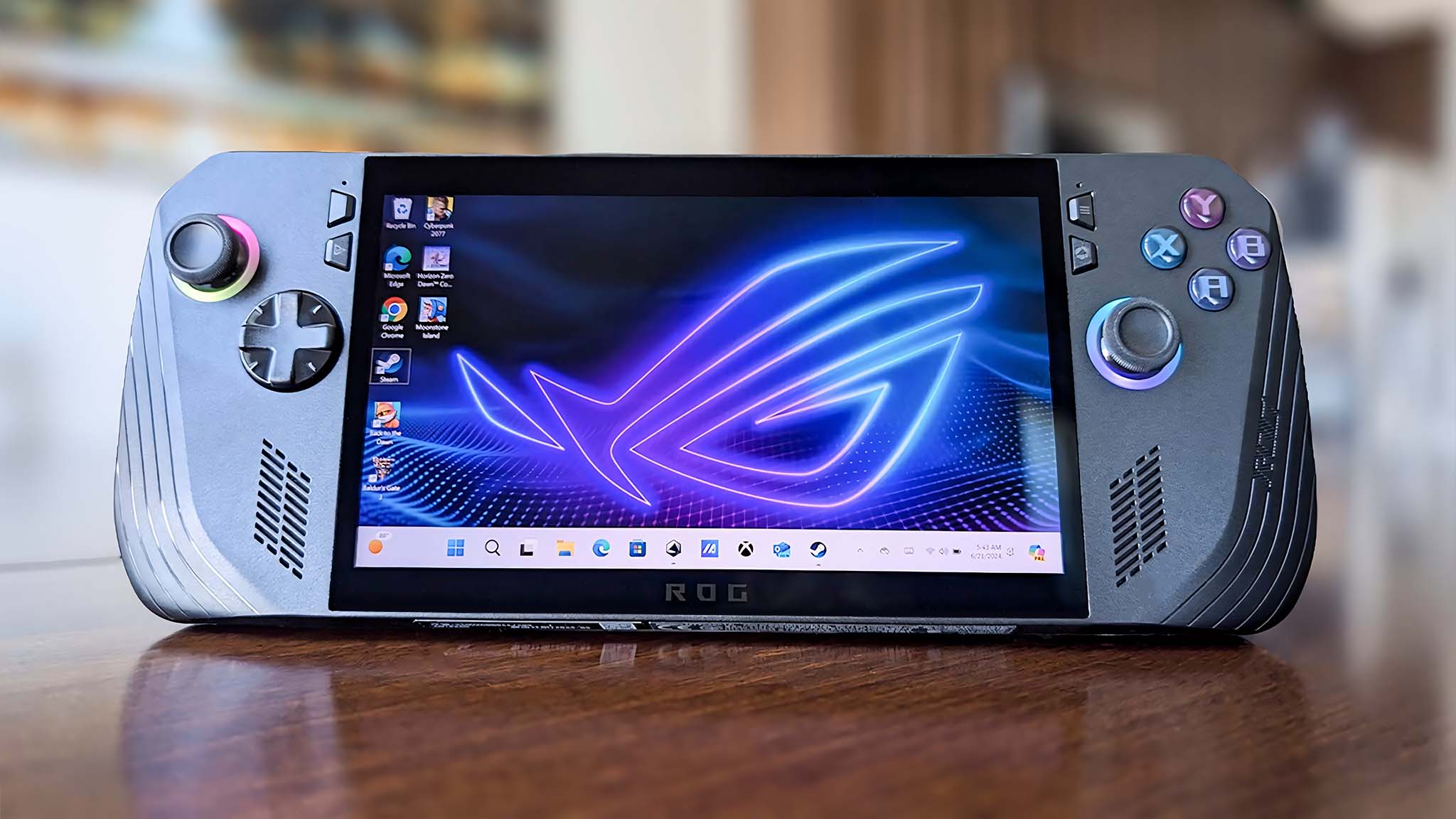

Specifications
Reasons to buy
Reasons to avoid
Let's pretend for a moment that you want a mini gaming PC you can take with you on the road. While the other PCs highlighted here can be tucked into a backpack while you travel, you can't just use them to game anywhere. That's where a quality gaming handheld comes into play.
There's none better right now than the ASUS ROG Ally X. It has everything you need for a portable gaming experience, essentially melding a gaming laptop with a gamepad. The 7-inch screen has a 1920x1080 resolution, touch functionality, up to 500 nits brightness, and a 120Hz refresh rate. The device is more comfortable to hold thanks to a rear button redesign, and it now has twice as much battery life as its predecessor.
In Rebecca Spear's ASUS ROG Ally X review, she noted:
"To sum up, having over 50% more battery life than the original Ally is convenient, but unless you only tend to play short gaming sessions, you're still going to find yourself running out of juice long before you want to. As such, the battery life of the Ally X still isn't great — but that's the case with all gaming handhelds."
The handheld is powered by an AMD Ryzen Z1 Extreme CPU, 24GB of RAM, and a 1TB SSD. It'll play any game you want (albeit with lowered in-game settings), and it runs on Windows for easy access to major launchers. It usually costs about $800, keeping it in line with other mini PCs in this roundup.
Read our in-depth ASUS ROG Ally X review
Choosing the best small gaming PC for you
Getting into PC gaming doesn't mean you need a monstrous tower on your desk, flooding the room with RGB neon lights. You can pack a lot of power into some seriously compact pre-built computers, and they keep getting better as tech shrinks generation over generation. You might not get overwhelming ray tracing support and 4K capabilities, but that doesn't matter to a lot of gamers.
The ASUS ROG NUC 970 is our top choice for most people, at least as long as they don't mind spending a bit more than $1,600. That price lands you a Core Ultra 7 155H CPU, NVIDIA RTX 4060 Laptop GPU, 16GB of RAM, and a 512GB SSD. My runner-up pick, the MSI MPG Trident 3, is slightly more affordable thanks to last-gen performance hardware that can nevertheless keep up with modern titles. You can pick up a unit with a Core i7-13700F CPU, NVIDIA RTX 3060 GPU, 32GB of RAM, and a 1TB SSD for about $1,469.
If you'd like a compact device capable of gaming anywhere, the ASUS ROG Ally X is the best handheld choice. It costs about $800, it'll run just about any game, and it has a great 7-inch FHD display with a 120Hz refresh rate.
Should you choose a mini PC or a gaming handheld?
I've already laid out the differences between a laptop and a gaming handheld, but what about choosing between a mini PC for gaming and a handheld? It all comes down to how you use your hardware.
Do you enjoy traveling with your games? Do you not want to invest in a separate display? Do you want to spend less than a high-end mini PC? A gaming handheld is probably the right choice for you.
Would you rather not worry about battery life? Want a discrete GPU and the ability to upgrade memory and storage after purchase? Already have a great gaming monitor you want to use most of the time? A mini PC is probably a better option, especially if you need a device that can also help with productivity when you aren't gaming.
Get the Windows Central Newsletter
All the latest news, reviews, and guides for Windows and Xbox diehards.

Cale Hunt brings to Windows Central more than eight years of experience writing about laptops, PCs, accessories, games, and beyond. If it runs Windows or in some way complements the hardware, there’s a good chance he knows about it, has written about it, or is already busy testing it.
- Samuel TolbertFreelance Writer
- Ben WilsonSenior Editor
